Arooj Aftab – Night Reign. You will know her by the company she keeps – guest musicians include Moor Mother, Joel Ross, Vijay Iyer, Kaki King, and Chocolate Genius to name the ones I was familiar with, and James Francies, Cautious Clay, and Maeve Gilchrist to name the ones I now know are worth becoming familiar with. Aftab’s previous album in 2021, Vulture Prince, was not her first, but it spread her music to a wider audience. This one follows up with a more varied selection of music, as you might have guessed from the guests listed above. Several songs are still sung in Pakistani – she is a Pakistani American who was actually born in Saudi Arabia. She does a fascinating take on “Autumn Leaves” wherein she uses several substitute notes without losing the essence of the song, and then lets Francies play an evocative electric piano solo. The track with Moor Mother and Ross puts Moor Mother’s spoken poetry against Aftab’s intoxicating vocal melody. Iyer’s piano on “Saaqi” is probably the most perfect meshing of vocals and instrument on the record but my fave track remains “Whiskey,” because of the worn-out way her alto sings “Your head gets heavy and rests on my shoulder / Because you drink too much whiskey when you’re with me.”
Swamp Dogg – Blackgrass: From West Virginia to 125th Street. Swamp Dogg goes bluegrass, and people get confused. Swamp Dogg is just being himself, though. Fiddles and banjos can deliver blues, soul, country, and weird just like his “normal” records have done for decades. He starts the album off raunchy with “Mess Under That Dress” and “Ugly Man’s Wife,” the latter being advice to a woman who will be treated like royalty by an ugly man. He ends with a WTF monologue over eerie music about a guy who finds it easy to kill people and hears Adam-12 coming to take him to prison after he knocks off his parents and many others, and then yells for them to pull the lever to the electric chair. In between, Margo Price stops by to sing an old song Dogg gave to Doris Duke, Jenny Lewis gets a new song that sounds like a lost classic, and Vernon Reid skronks all over a bluegrass jamboree number. Jerry Williams aka Swamp Dogg is singing as well as he ever has, and he’s made a genuinely odd but enjoyable record here.
Mr. Personality – Socially Attractive. This St. Louis trio self-describes as “garageacana,” and that makes sense to me. Here are three guys who have been playing music for at least a couple decades just having fun getting together and ripping through some urgent yet yearning songs. I recognize Bob McKee from various other bands in town, but Bob III and Dave Hansen are unknown to me. So I can tell you McKee sings more than half the seven songs here, but don’t know which of the others does what. Arrangements are tight but the band is loose, if you know what I mean. They have a sense of humor, as they bemoan the problems of still being in bands after all these years but realize that not being in a band would be worse in “Nothing Worse Than,” and self-deprecate in “Socially Attractive.” But then there’s “Mine,” a deadpan yet devastating song about life after a long term relationship ends.
David Murray – Francesca. At this point, after I’ve been listening to him for some 40 years – and hearing only a drop in the bucket of 100s of recordings he’s made – I am no longer surprised by David Murray. As evidenced here, his lusciously ecstatic tone on tenor saxophone and his equally evocative tone on bass clarinet are unmatchable. This record features Murray in tandem with a younger group – Marta Sanchez on piano, Luke Stewart on bass, and Russell Carter on drums – which has no problem keeping up with his shifting improvisations and complex melodies. Seven of eight tunes here are by Murray, with an old Don Pullen number thrown in. Sanchez gets the lion’s share of non-Murray solos, and she sounds exquisite whenever she plays. Stewart and Carter are torrid in their support of the other two players, and they each get a solo or two as well. Some Murray albums can take off for the stratosphear; this one is content to simply fly a few feet off the ground where anybody can hear what’s happening.
Sisso – Singeli Ya Maajabu. My initial response to this was laughter, because I’d never heard electronic dance music – or any kind of music – played so incredibly fast, with the added bonus of many of the melodic instruments being sped up to get a higher pitch. But by the end of the record, my laughter turned to giddy pleasure, and I’ve gone back to this a few times now. Sisso lives in Tanzania, and singeli, it turns out, is a current dance genre in clubs over there. I can’t begin to imagine how people are moving to this, as the beats are seriously well beyond human capacity to keep up. But there is a logic to all the seemingly random rhythms and melodic fragments and unusual sounds that crop up in these tracks. Many of the rhythms are based in African forms – sometimes sampled from folk recordings and sometimes simply used as inspiration. The tunes are short bursts of simple but exuberant melodies. Maybe there will be the sound of water pouring from a glass, again pitched up to sound weirder than real life. One track is a beautiful mish mash of female voices blending in harmony. My only complaint is the sudden ending of each track, as if the ideas were over before they could be stopped, but that probably makes them easier to mix into other musics by djs ruling the Tanzanian dance floors.
Avalanche Kaito – Talitakum. This African-based music is much closer to human tempos, but is possibly even weirder than the music of Sisso. Kaito Winse hails from the land-locked country Burkina Faso in Western Africa. Benjamin Chaval and Nico Gitto are from Belgium. The latter two are heavily steeped in noise rock traditions, while the former knows the griot traditions of his homeland. All three like to mess with things, and the record is a joyous, crazy-quilt mess indeed. How can you get me to listen to a whole record with noisy, oddly tuned guitars? Throw in a whole lot of polyrhythmic excitement mixing African drum sounds with western trap drums. Winse has a tough power to his vocals which matches the music perfectly, and takes us to a place we’ve never been. It’s a wild ride that goes by way too fast.
David Udell – It’s Worth It. Udell has been hovering around the St. Louis music scene since the late 70s in a variety of projects, most notably the prog rock band Earwacks that inexplicably changed its name to Wax Theatricks before breaking up. This is his second solo record that I know of. I love the way his prog sensibility vies with his pop sense – there are hooks and tunes in these thickly-structured songs. Some of them are intensely beautiful as he wrestles with the way the world is changing and how to figure out his place in it. “Is It Worth It?” he asks on track eight. “It’s Worth It,” he replies on track ten. That last cut is sublime, as Udell throws in everything he can find – multiple instruments playing a delicate melodic fragment, found sounds, and a whole lot of vocals in different tracks bouncing around your ears. Udell loves stereo separation and panning – play this on a good set of earphones and you’ll be intoxicated.
Kip & JJ Loui – Breadface EP. Eight songs and 25 minutes is pushing the definition of an EP, but I’m not complaining. This is a strong collection of new songs from the pen of Kip Loui, three of which feature the vocals of his wife JJ. I’ve said before that I’ve been listening to this St. Louisian’s music for decades now. He’s got the craft of songwriting down, and he has some fun with the stuff he’s offering here. With backing from some of the finest players in St. Louis – many of whom have played in bands with him at one time or another – Loui offers material in various genres - rock, soul, country, even Irish folk. I especially think the songwriting is sharpest on the twin love songs in the middle – “Sit Right Down” and “Saving For a Sunny Day,” and the ode to growing older together, “Do You Still Want This,” all sung by JJ despite the credits on Bandcamp which deny what my ears tell me on the latter. But the two opening tracks rock as hard as anything he’s ever done, too. One final note – I’ve driven by the apartment complex with the sign “If you lived here you’d be home by now” at least a few hundred times, and I’m guessing so has Kip, since he took the line and made it the hook in a song about sailors in olden times.
Linda Thompson – Proxy Music. I’ve listened to almost everything Linda Thompson has ever released, and I don’t remember her writing songs as good as these when she was still capable of singing. Thanks to something called spasmodic dysphonia, the wonderful voice that delivered so many classic records both with her then-husband Richard Thompson and without has been silenced. But since she got the songwriting bug maybe a dozen years back, she still has things to say. Fortunately, her family and friends include some magnificent singers. It was quick and easy work to rope in her daughter Kami (both solo and with her duo the Rails) and son Teddy (who also produced the record, as he’s done most of her albums these past two decades), and not hard to get both Rufus and Martha Wainwright who grew up with Teddy and Kami. Eliza Carthy and the Proclaimers were easily roped in. I don’t know the other singers here, but they’re just as good and just as connected to Linda. Martha Wainwright delivers “Or Nothing At All” with all the grace of her mother, Linda’s friend Kate McGarrigle, whose influence lies heavy on this melody. The Proclaimers are perfect delivery vehicles for “Bonnie Lass,” a song about a subject they’ve covered before, parenthood. There isn’t a false note on this wonderful record, but the pièce de résistance, at least for those of us who have encountered everybody mentioned in the song, is “Those Damn Roches.” Teddy Thompson sings this tribute to the Roches, the McGarrigle/Wainwright family, Waterson: Carthy, the Copper Family (a magnificent traditional English folk group I was lucky enough to see once), and of course, the Thompsons themselves.
Jim Lauderdale – My Favorite Place. I’ve been listening to Jim Lauderdale for 33 years now, which I think includes 32 albums, and I’m still waiting for him to record a song that isn’t at least pretty dang good. He’s steeped so heavily in country music history, which always informs his writing and performing. More importantly, he’s always enamored of melody, hooks, and clever ways to say what he’s feeling. He also always hires top flight musicians, and gives them all space in the studio to help arrange the songs, just like they always used to do back in the 60s. The new record is a basic Jim Lauderdale album, giving us eleven more examples of his skills. One song, “You’ve Gotta Shine,” is so ridiculously infectious I can’t begin to describe it. I can only marvel at the consistency of this talented performer for so long a time.
John Zorn – Her Melodious Lay. I lost track of John Zorn more than 30 years ago and boy, am I surprised at the turns he’s taken in his music. This album has nary a trace of frantic saxophone or super-twisty rhythms. Instead, he has two brilliant guitarists – Julian Lage, fast becoming a fave of mine, and Gyan Riley (son of composer Terry Riley, it turns out) – playing intricate, beautifully designed through-composed pieces. Zorn has apparently done several records with these two playing his music. I can’t compare this one to those, but I can say that these nine tracks are as lovely as the Shakespearean inspirations which provide the song titles. They’re also far from being simply pretty – there is darkness hidden in unusual chord changes or occasional dissonances. What else has Zorn got up his sleeve, and what good stuff have I missed?
Carly Pearce – Hummingbird. Hook for hook, Pearce and her songwriting cronies can stand toe to toe with the best of today’s country performers, most definitely including all of the great women singers of the last few years. She takes her situations – some more songs about her eight-month marriage a couple years ago, some about other varieties of love gone bad, the occasional nod to happiness in the early days – and boils them down to clever and catchy words and tunes. Take a look at her song titles – “Rock Paper Scissors,” “Still Blue,” “Woman to Woman” and you might think you know what she’s going to do with them. But every time, she manages to pull a twist and use the title as a pun or an unexpected portion of a phrase. She’s also a heck of an effective singer who clearly enjoys sharing her ideas in the most engaging manner possible. There’s not a weak cut among fourteen songs here.
Ngwaka Son Systeme – Iboto Ngenge. I don’t know much about the Congolese music scene, but I know this record is jam packed with joyous, ebullient, incandescent dance sounds. The musicians – led by Love Lokombe and Boms Bomolo from the band Kokoko – take inspiration from all sorts of styles including techno, rumba, and soukous. It could just be me looking for parallels to what I already know, but I thought of Das EFX and Cypress Hill in a couple places here. The beats are furious yet spry. The vocals can be all over the place in approach, but they are pretty much always delivering hooks. Some of the instruments are apparently home made out of objects you wouldn’t expect to be musical. The EP contains five original songs and a neat dub of one of them – make sure you’re wearing comfortable shoes, as you will want to dance.
Hiatus Kaiyote – Love Heart Cheat Code. Hailing from Melbourne, Australia, Haitus Kaiyote is a rarity in today’s r&b world – a complete all-in-one four-piece band. Their new album is an absolute delight, with sinuous complex grooves, jazz-inflected but self-aware vocal melodies, and occasional bursts of pure noise. My fave song here, “Telescope” quotes from both the Temptations and Sun Ra. A short song, “Longcat,” seems likely to have originated when singer/guitarist Naomi “Nai Palm” Saalfield was at home making up a tune to call her cat. The title track has an insanely catchy hook. And there’s a wild cover of the Jefferson Airplane’s “White Rabbit.” This band both fits in the current r&b zeitgeist and seeks to push trends into something new.
Redd Kross – Redd Kross. Jeff and Steve McDonald were kids in the 70s and they clearly loved all the cartoon shows of that time as well as the harder rocking pop bands such as Kiss. Their music has combined the hooks of cartoon theme songs with the power of punk and metal. Here they come with their 8th album in a career that’s lasted 42 years. Prolific they ain’t, though they have 18 new songs to share with us. Every last one of them is a winner. It takes a few listens to absorb the melodies, though the energy and enthusiasm hits you right away. This morning’s listen found me right in the sweet spot, with my body feeling all the excitement and my head wanting to sing along – it’ll take me a few more plays to get the words down to do so, however. I did grasp the lines “Brian Jones and poor baby Jean Harlow / Famous blondes died 32 years apart.” Who else would make that connection?
Madeleine Peyroux – Let’s Walk. She’s been on the periphery of my radar for a while now, occasionally catching my ear with her sharp connections to jazz, pop, and blues standards. But now she’s become a songwriter, and she’s terrific at it. The material is in the same vein as the songs she always used to sing, but she has a humorous edge to the way she views the world herself. At times, this woman who has long been compared to Billie Holiday for the tone if not the phrasing of her voice reminds me of Kirsty MacColl. She brings an archness to the forefront of her writing, and she keeps it in the coy way she delivers the songs. And, mind you, these songs are catchy whether blues, French chanson, Latin tinged, or her take on standard pop. This record could be the most surprising delight of the year.
Fastball – Sonic Ranch. Perhaps the most underrated rock band of the last couple decades, Fastball writes rich, evocative, perfectly shaped melodies that can stand to be compared, if not quite equal to Elvis Costello or Crowded House. Obviously, these are the two biggest influences on this trio. This new record is another strong collection of Fastball songs, all tightly arranged bright rockers that usually only fall below the above-named writers in that the hooks aren’t quite as sharp. I do get revved up every time I listen to this one, though. “Rather Be Me Than You” certainly kicks off the album in powerful fashion, and the piano ballad “I’ll Be On My Way” ends it with the urge to hear the whole thing again.
The Del McCoury Band – Songs of Love and Life. The bluegrass legend has been making consistently excellent records for decades, and this is yet another one. I’m not sure where these songs come from, aside from a version of Roy Orbison’s “Only the Lonely.” But, as always, McCoury has a fine ear for finding strong material, and no matter what he sings, he focuses all his attention on delivering the finest possible version of the song. I remember seeing this band live a couple times some twenty years back. In a concert performance in a hall, with a reverent older crowd concentrating on every high lonesome yelp from his throat, the band was poignant and impressive. In a club, with a crowd of hippies dancing and screaming along, the band was raucous and powerful. Del McCoury gives something for everyone.
Love Fiend – Handle With Care. Every time I play this I feel transported back to 1979 when lots of bands were making music that sounded kinda like this. Or rather, lots of bands were influenced by the same things this young California band somehow loves – Devo, the Cars, Gary Numan, and indirectly Neu. The latter influence is direct for Love Fiend, as demonstrated on their “Neu Testament” here. Now, I’ve never heard a Neu record that really hit me, but if I’m missing out on something that revs up the way this cut explodes at the end, please let me know. I am certain, however, that even if there is such a thing, it isn’t as poptastic in the hook department as this track, or any of the other cuts on this album. Love Fiend tap into the energetic vibe when guitars and synthesizers were working together for the first time, and sound just as enthusiastic as we all were back in the day.
Red Hot Org – Outer Spaceways Incorporated – Kronos Quartet and Friends Meet Sun Ra. This is the second Red Hot Org tribute to Sun Ra this year and I think it works better than the one featuring Meshell Ndegeocello a few months back. With the Kronos Quartet’s highly adaptable musical grounding, this record can show off Ra’s wildest musical concepts – lots of synthesized sonic forays, and some crazed sounds vie with toe-tapping jazz and clobbering strings. As a listening experience, it stands with some of Ra’s own work without ever really imitating him. I say this as someone who owns something close to 40 Ra CDs and records, which is, I know, only a drop in the bucket of recordings the man made. You never knew what you were going to get with a Sun Ra album – this tribute puts that aspect of his career into high gear, as you never know what you’re going to get from track to track. Except that after a few listens, you’ll be triggered to want this particular sequence of sounds and guest stars every time.
The Staples Jr. Singers – Searching. It was a cute idea back in the mid-70s when a group of teenage brothers, last name Brown, started singing gospel and recording an album under the name The Staples Jr. Singers. This was an homage to the much better known gospel/soul group the Staple Singers. Now, fifty years later, the Browns, augmented by a younger generation of the family, are stuck with the name for their second release. Admittedly, when I first saw this album mentioned, I was confused, and actually didn’t bother to listen to it until Phil Overeem, a man whose taste I respect (and who has his own very cool blog), vouched for it. I’m glad I did, as this is down south gospel music with a lot of blues and soul influence. The older brothers can still sing, the songs are memorable, the arrangements deep and powerful. If anything, they remind me a bit of the late, lamented Holmes Brothers, but changing to the Holmes Jr. Brothers would have been out of the question.
James Carter – Un. Brace yourself as if you’re about to walk into a wind tunnel, because the first blast of James Carter’s solo baritone saxophone is capable of knocking you right off your feet. It’s a beautiful way to fall, though, as Carter displays an uncanny ability to blow furious storms of frenzied expression while simultaneously making you want to dance as if there was a big band rhythm section behind him. I’m not usually crazy about solo saxophone records – I often have to work myself up to get in the mood to be on that plane of musical existence. But this record is a delight from start to finish. It’s plain great jazz by a master of tone, melody, improvisational leaps, and emotional resonance. I feel uplifted every time I hear it.
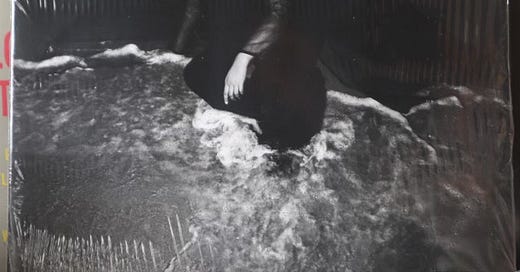



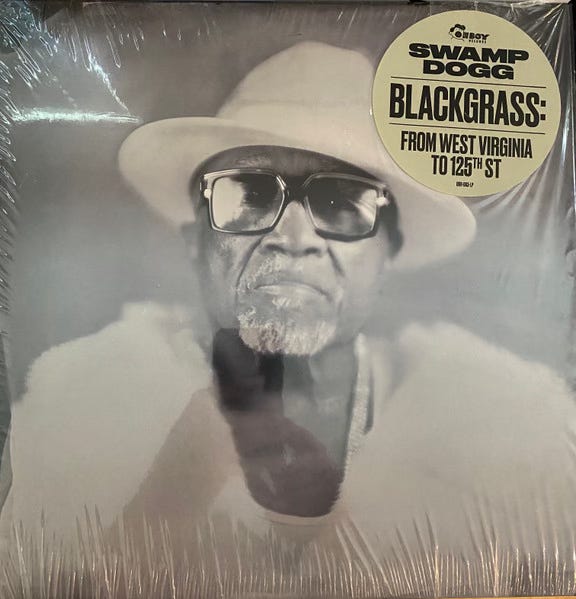
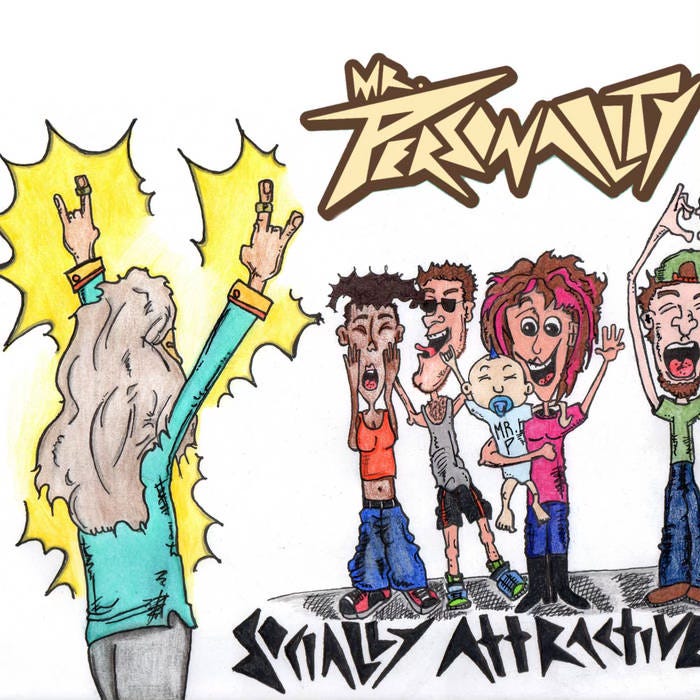

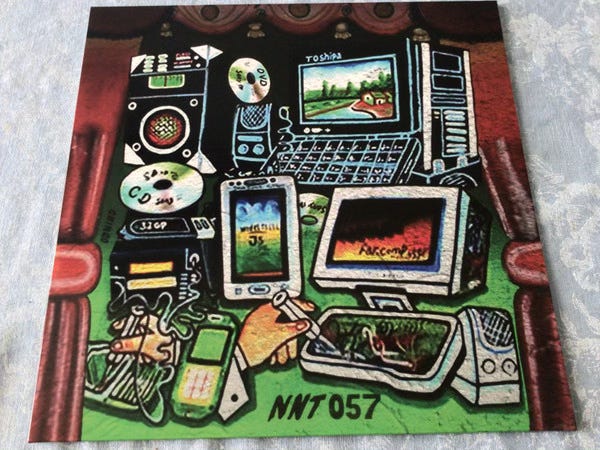
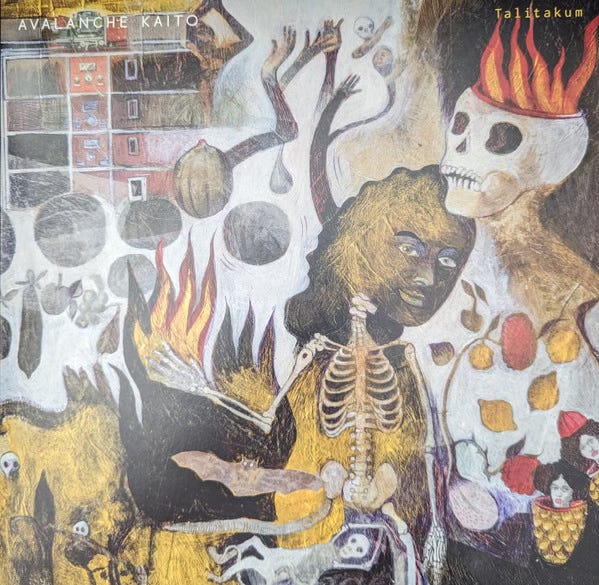

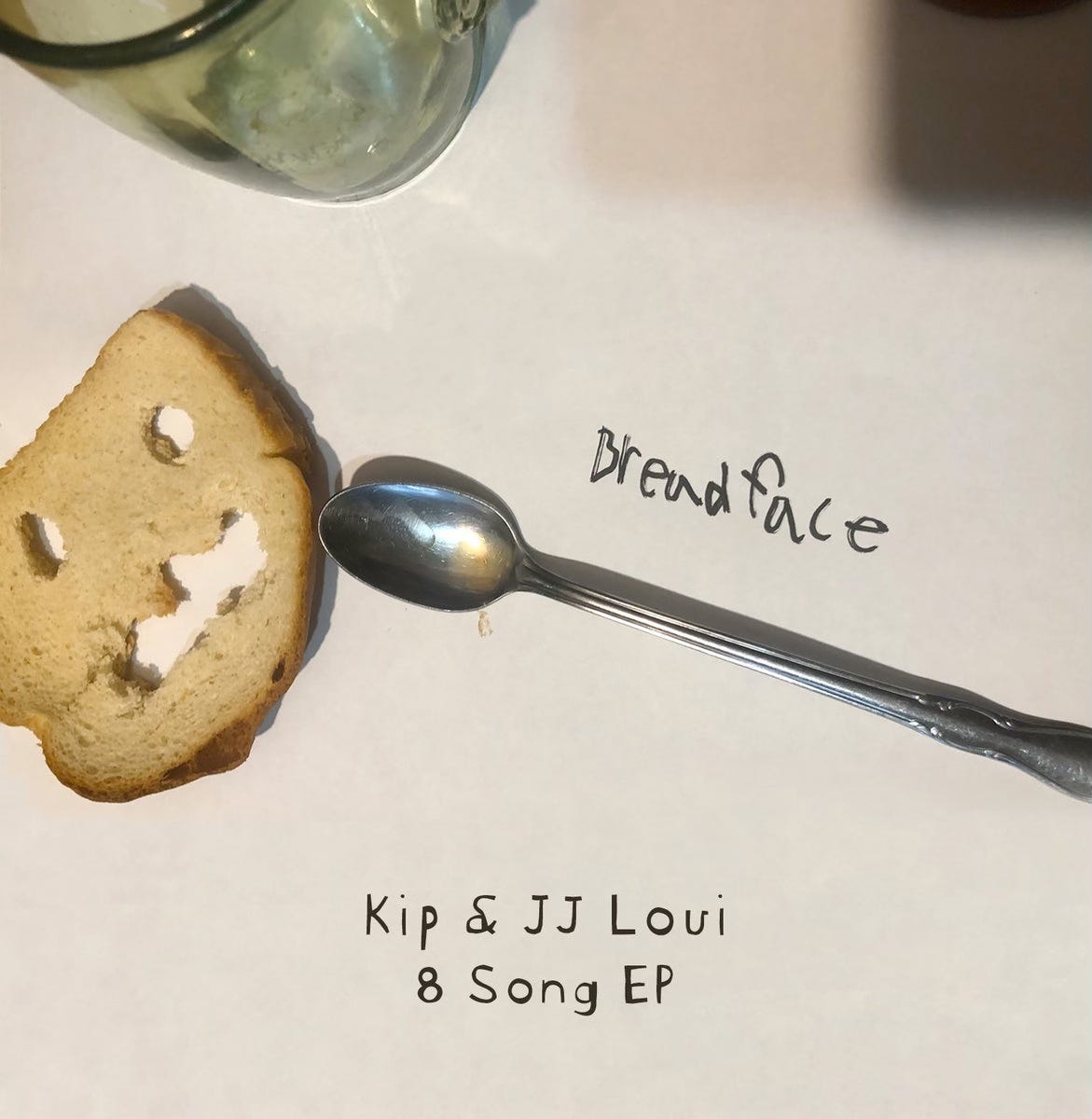
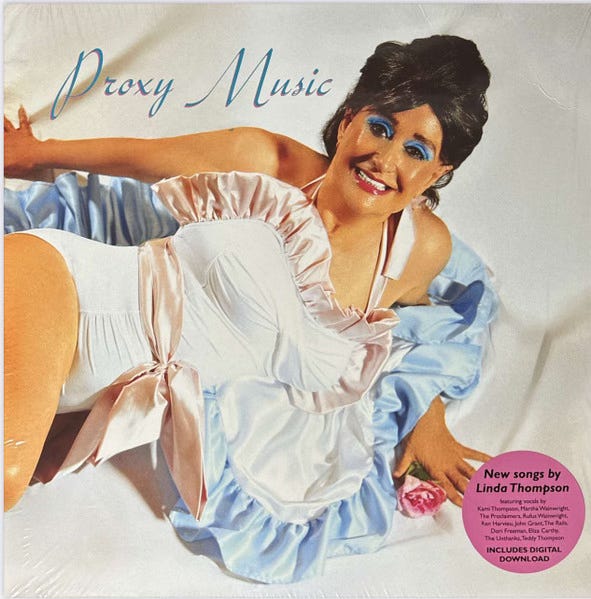







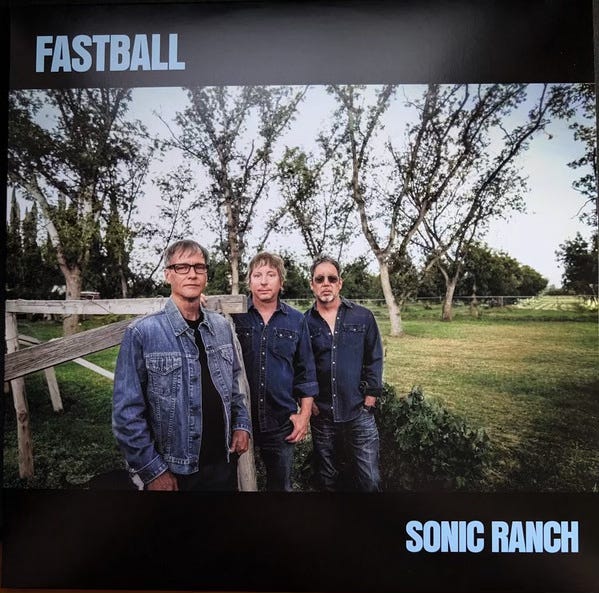
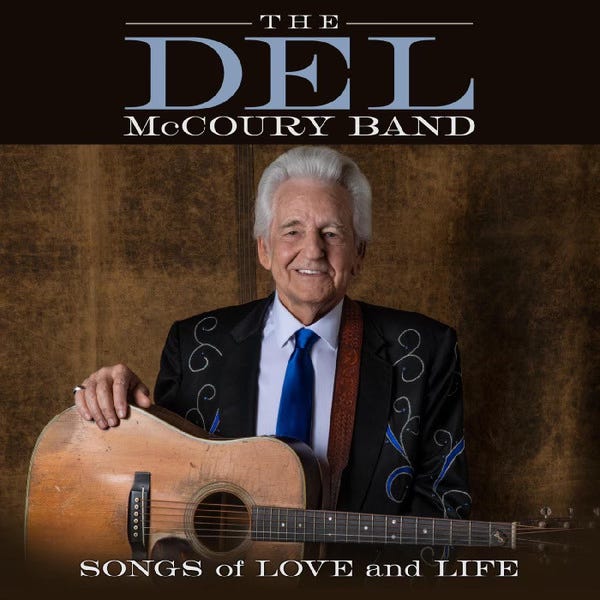



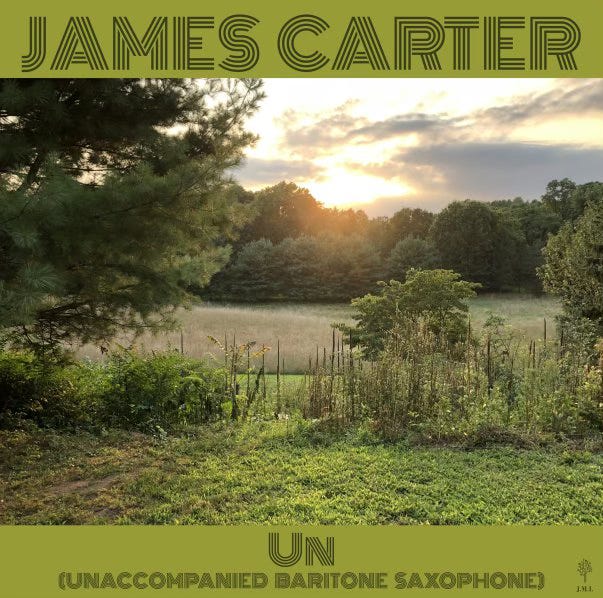
You got me back! Though I have heard Del's new one and thought about putting it on my list--he sounds great, though I don't think he quite pulled off the Orbison cover!